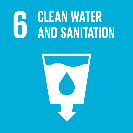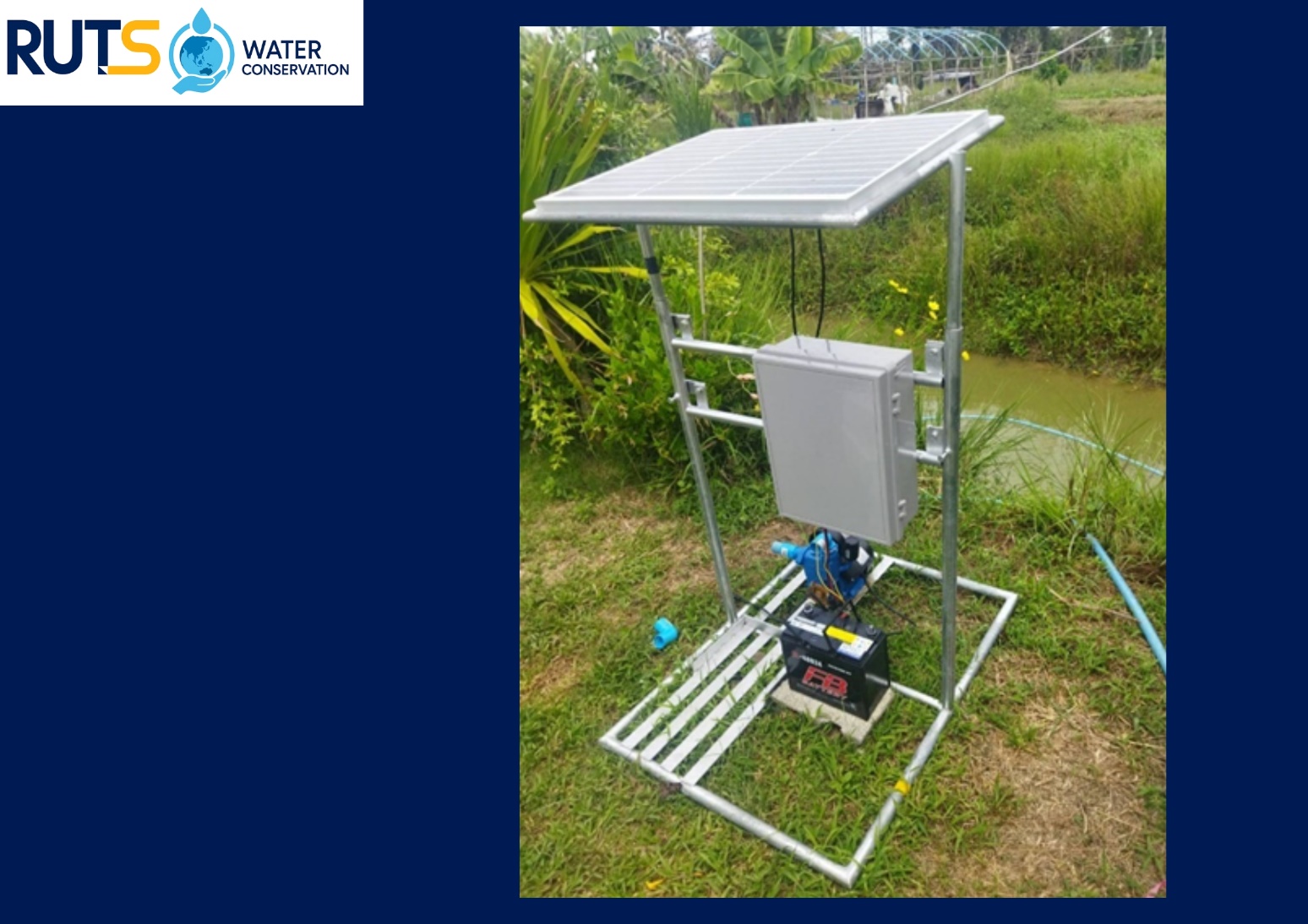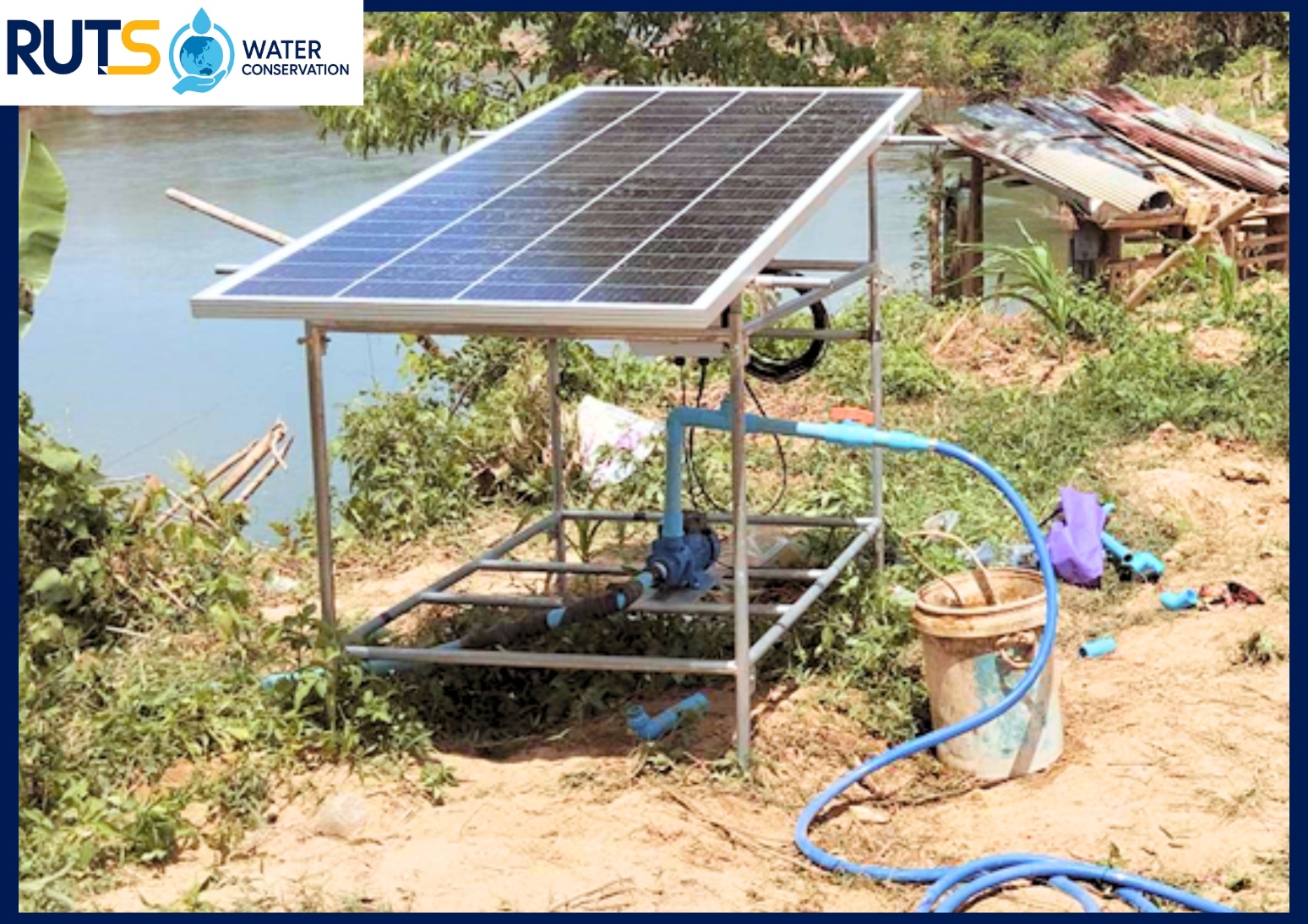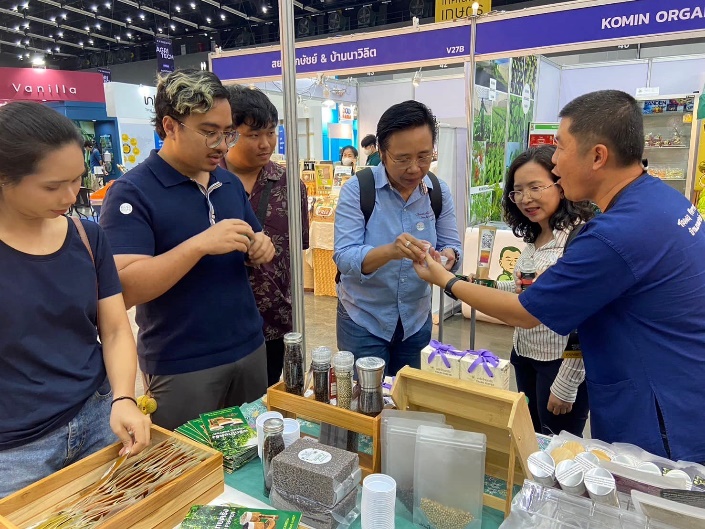Reporters: Mr. Sujinda Saehan, Mr. Ekkajak Intarat, Mr. Nitigon Jumniansuk, Mr. Thanet Sangseejun
Evidence Date: November 5th, 2024
Related SDGs: 
Related Indicators: 6.4.1, 6.4.2, 6.5.3, 6.5.4, 6.5.7
Details:
The design of this system focuses on mobility and ease of installation, as it is intended to be transported and deployed in various agricultural areas. To improve portability, the size of the solar panel has been reduced, resulting in a more compact structure. The frame can be disassembled and reassembled easily, making it convenient to move and install in different locations.
The system includes a battery for energy storage, which supplies power to the water pump. During daylight hours, solar energy is converted into electricity to drive the pump motor, while any excess power is stored in a 12-volt 65-amp battery. This stored energy enables the pump to operate continuously for 1.5 to 2 hours in the absence of sunlight.
In terms of performance, the system is capable of pumping 2,000–3,000 liters of water per day, which is sufficient to maintain a consistent water supply for crops such as corn. The integration of a soil moisture sensor allows users to choose between two watering modes:
- Manual mode – for regular irrigation control.
- Automatic mode – where irrigation is activated based on pre-set soil moisture thresholds.
The system’s lifespan is approximately four years, and the innovation is priced at 17,500 THB.


This innovation contributes directly to Sustainable Development Goal (SDG) 6: Clean Water and Sanitation, particularly Target 6.4, which aims to increase water-use efficiency across all sectors. By delivering precise irrigation only when soil moisture levels fall below optimal thresholds, the system minimizes water waste and promotes sustainable agricultural practices. Additionally, the use of renewable solar energy supports SDG 7: Affordable and Clean Energy, reducing reliance on fossil fuels and lowering greenhouse gas emissions.
Beyond its technical benefits, the system helps local farmers adapt to climate change by ensuring a reliable and efficient water supply for crops even during dry seasons. It also strengthens community capacity in sustainable water resource management and eco-friendly farming innovation.
Related Links:



